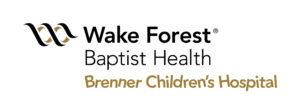By Timothy E. Smith, MD, Director of Pediatrics and Associate Professor of Anesthesiology at Brenner Children’s Hospital
The anticipation of surgery can be scary, especially when it’s your child who has to have a procedure. Some parents worry about anesthesia, in particular. If this describes you, it might help you to know more about how pediatric anesthesiologists prepare children for surgery—and how their care can help the whole family through the process. Here are some basic facts about pediatric anesthesiology at Brenner Children’s Hospital:
- Brenner Children’s Hospital is one of the only hospitals in the region with board-certified pediatric anesthesiologists. Our anesthesiologists are trained and certified in caring for newborns, infants and children. As part of their medical training, all of our pediatric anesthesiologists completed a one-year fellowship at a children’s hospital prior to becoming board certified in the specialty of pediatric anesthesiology.
- Before the surgery, we make the separation process as easy and seamless as possible. When your child goes into surgery, he or she will be separated from you for the procedure. Our goal is to make this a smooth transition that is easy on both you and your child. To ensure your child does not feel scared or threatened during this process, we use medications as well as distraction techniques, which can include letting your child play games on a tablet, or letting him or her listen to music on an iPod. The easier this process is for your child, the easier it will be on you.
- During surgery, there will always be someone monitoring your child. There will be a qualified anesthesia professional with your child the entire time he or she is under anesthesia. We will have someone devoted to evaluating your child’s vital signs, depth of anesthesia and breathing throughout the operation.
 Your child’s pediatric anesthesiologist will go over any questions you have. Before your child’s procedure, the anesthesiologist will give you instructions, such as how soon before the surgery you need to stop giving your child solid food and liquids. In addition, if you have specific or in-depth questions about your child’s anesthesia, the pediatric anesthesiologist will go over all of the details with you. Serious reactions to anesthesia medicines are very rare, but be sure to bring up any concerns you may have, especially if anyone in your family has ever had a severe reaction to anesthesia medications.
Your child’s pediatric anesthesiologist will go over any questions you have. Before your child’s procedure, the anesthesiologist will give you instructions, such as how soon before the surgery you need to stop giving your child solid food and liquids. In addition, if you have specific or in-depth questions about your child’s anesthesia, the pediatric anesthesiologist will go over all of the details with you. Serious reactions to anesthesia medicines are very rare, but be sure to bring up any concerns you may have, especially if anyone in your family has ever had a severe reaction to anesthesia medications.
You can learn more about our pediatric anesthesiology department by visiting www.brennerchildrens.org/Pediatric-Anesthesiology.
 *Sponsored by Brenner Children’s Hospital
*Sponsored by Brenner Children’s Hospital

















Why would anyone in Winston Salem allow their child have an anesthetic with anyone other than a pediatric anesthesiologist? There IS a difference!! The only place you can get this level of safe care is at Brenner Children’s hospital. Many parents don’t understand the difference. They trust the surgeon. However, if that surgeon does not operate at Brenner, then the anesthesia care will not be at the same level and the surgical facility will not have every level of care available should something unforeseen happen during the procedure.
My child had 4 surgeries at Brenner’s and ALL the staff members are WONDERFUL! Dr. Smith, as well as Betty Petree!!, helped me and my child with every step. We are blessed to have such an amazing facility in our town. Surgery is never something “easy to swallow”, although knowing who you have helping can make it one breath better!